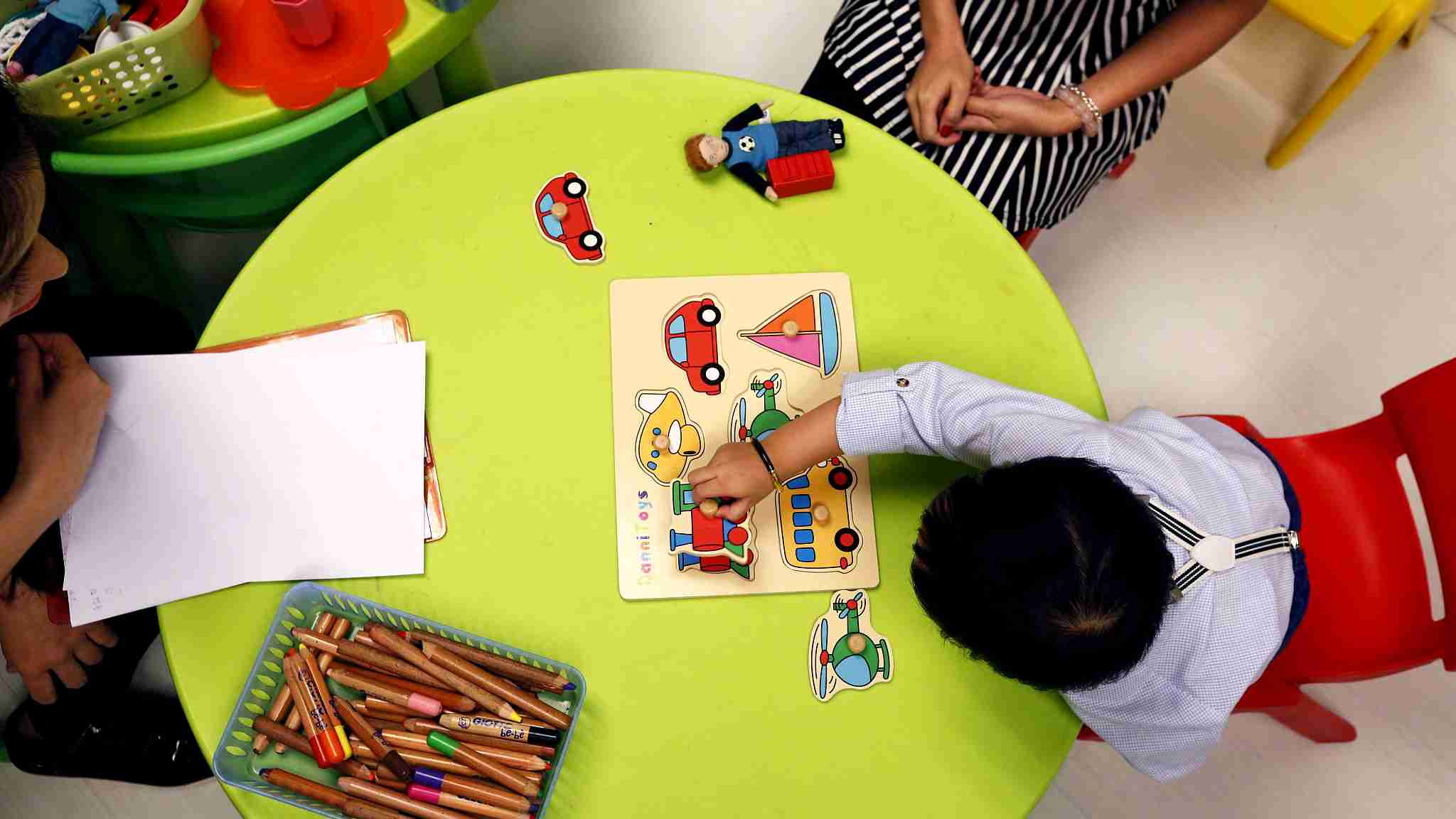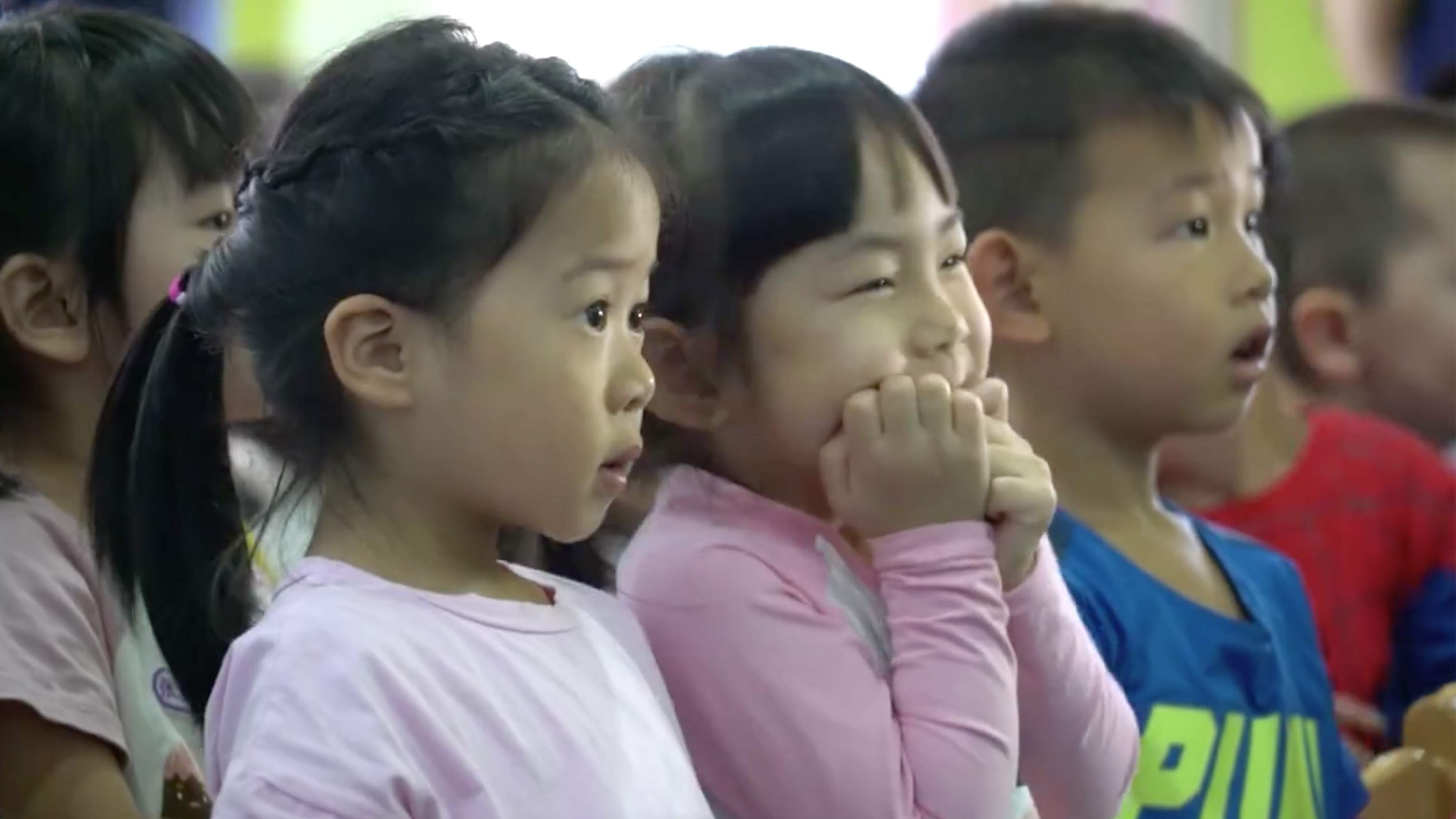
Business
17:08, 16-Nov-2018
Chinese kindergarten reform to halt 'excess profit-seeking'
Updated
16:06, 19-Nov-2018
Nicholas Moore

A high-level directive jointly released by the Communist Party of China Central Committee and the State Council on reforming kindergarten education will aim to curb excessive profit-seeking behavior in the sector by banning China's private preschools from selling shares, an announcement that saw education stocks plummet on Thursday.
The new legislation will look to provide “more affordable preschool education,” according to the State Council's website, with the target of enrolling around 85 percent of preschoolers aged between 3 and 6 in certified kindergartens by 2020.
Meanwhile, 80 percent of “children studying at affordable kindergartens, including public and private ones, will account for 80 percent of all preschoolers” by 2020, according to the new legislation.
00:53

Private kindergartens will be barred from selling shares publicly or as asset packages, according to the State Council. Listed companies will not be able to invest in private preschools through share sales or cash injections, and investment from private investors will also be blocked.
An end to 'profit-seeking behavior'
The new push for more equal and affordable access to preschool education aims to stop “profit-seeking behavior” among private kindergartens, with several large preschool organizations expanding rapidly in recent years into businesses worth hundreds of millions of US dollars.
Shares in New York-listed RYB Education Inc., a private kindergarten company that was embroiled in a child abuse scandal earlier this year, dropped by more than 55 percent after the new legislation was announced, wiping some 240 million US dollars from its value.
Other Chinese education companies also saw their share prices plunge, with Wall Street-listed company Bright Scholar Education Holdings falling 17.29 percent. In Hong Kong, China Maple Leaf Educational Systems had fallen by more than 17 percent by Friday morning.
At least 15 education startups have listed in Hong Kong and the US since the start of 2017. China Daily reported last year that the private education sector was expected to be worth 495 billion yuan (71.3 billion US dollars) in 2020, citing a report by Frost and Sullivan.
According to China Daily, enrolling one student at the RYB kindergarten in Beijing at the center of the child abuse issue costs 5,000 yuan (720 US dollars) per month. In Beijing, the average monthly salary was 10,500 yuan (1,510 US dollars) per month as of July this year, according to Xinhua.
China Daily reported that teachers at the Beijing RYB kindergarten were paid only 3,650 yuan (525 US dollars) per month on average, highlighting the company's focus on profit. The company made net revenue of 28.8 million US dollars in the first quarter of 2018, according to an RYB earnings report.
Plans to train 1.5 million principals and teachers
The State Council's directive said more than 200,000 university students will be enrolled in preschool education degree programs by 2020, with plans to train more than 1.5 million preschool principals and teachers.
This will lay the foundations for the establishment of a national preschool network in place by 2035, ensuring access to all children in the country to three years of preschool education.
In 2017, Ministry of Education data showed that only 22.4 percent of kindergarten teachers have been educated to high school level or higher.
Local authorities will be encouraged to establish private kindergartens, with the aim of putting 50 percent of preschool children into public education by 2020.
According to official data published in 2017, 64 percent of China's 255,000 kindergartens were privately funded and operated.

SITEMAP
Copyright © 2018 CGTN. Beijing ICP prepared NO.16065310-3
Copyright © 2018 CGTN. Beijing ICP prepared NO.16065310-3